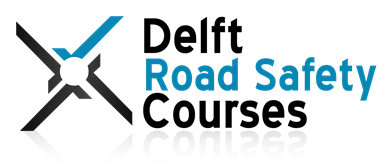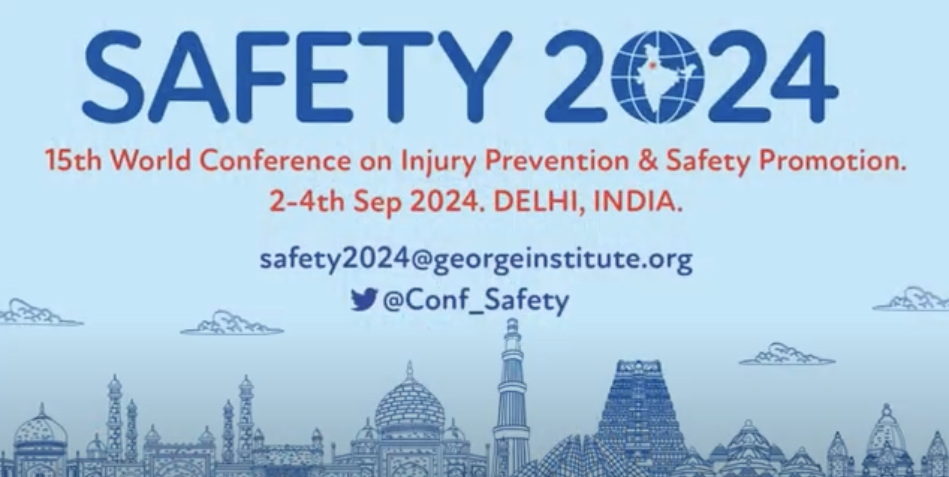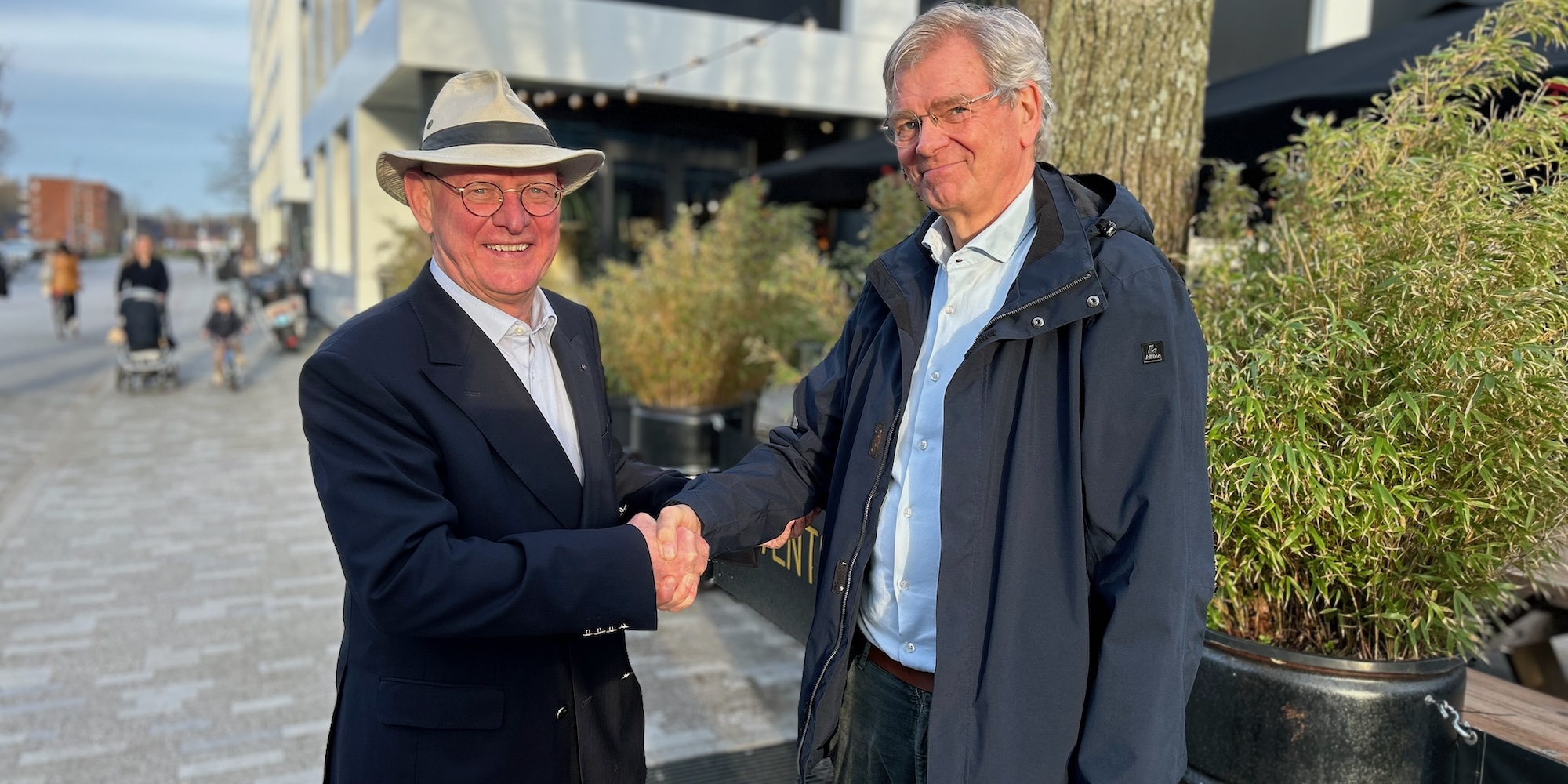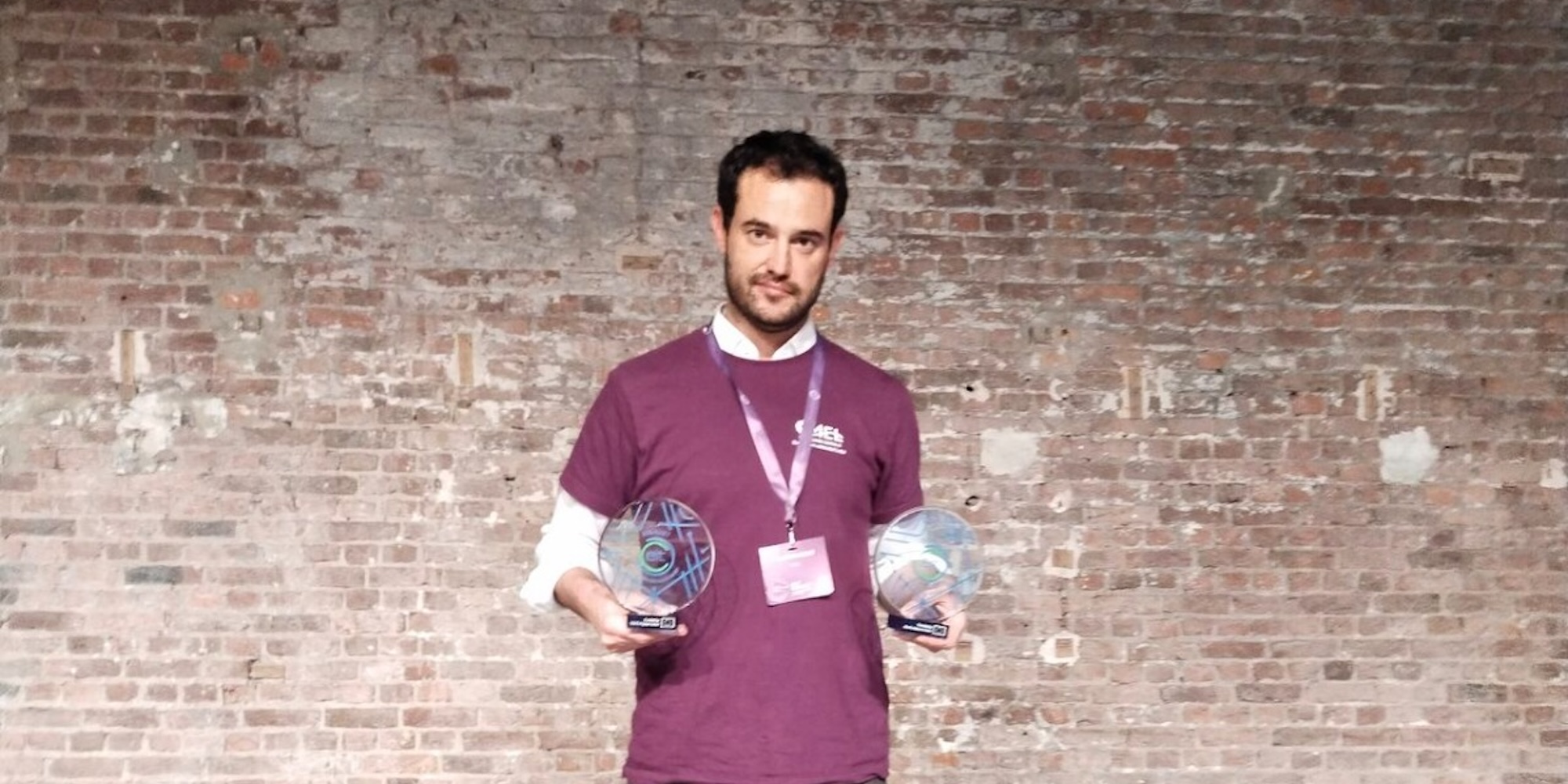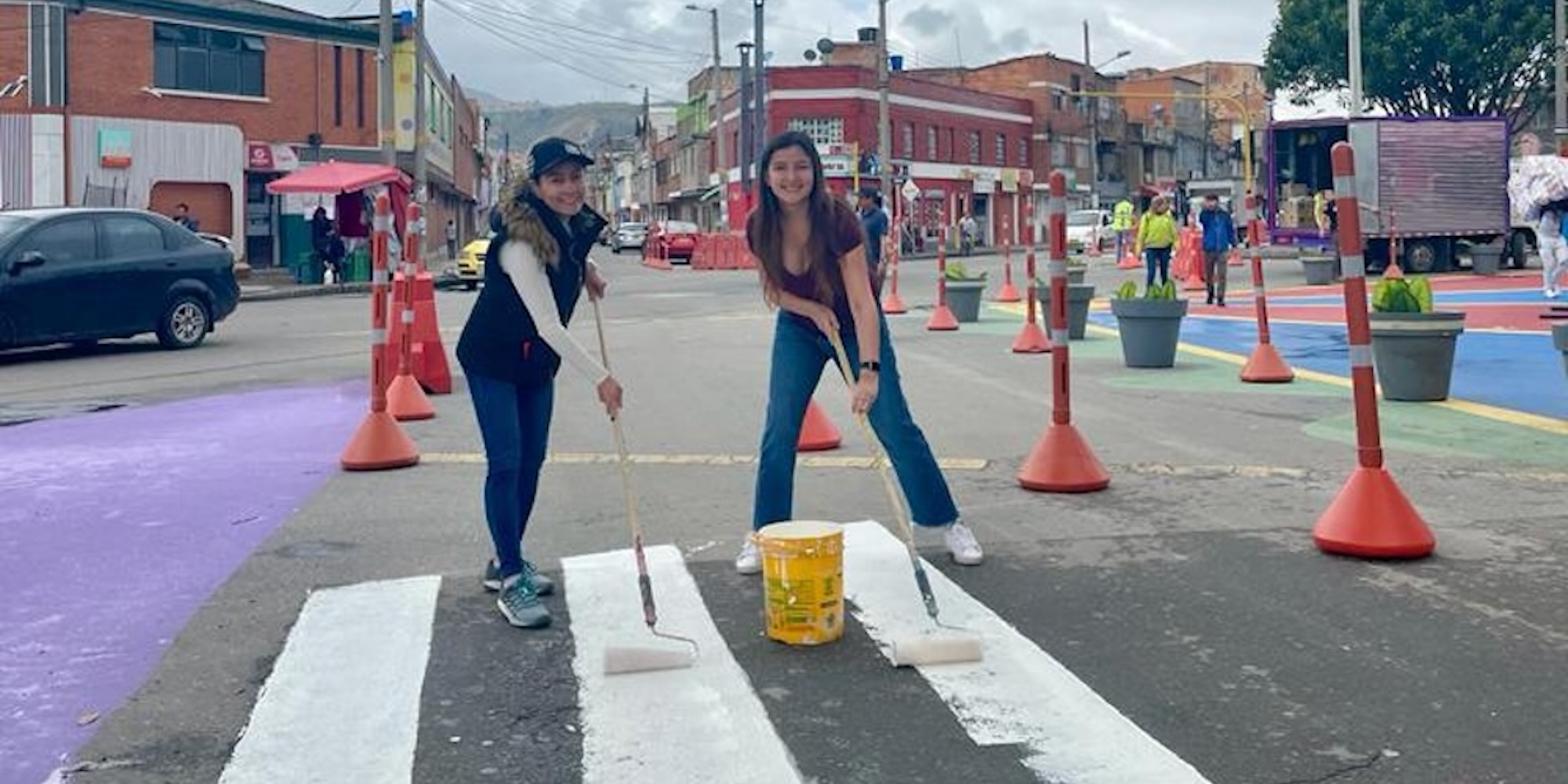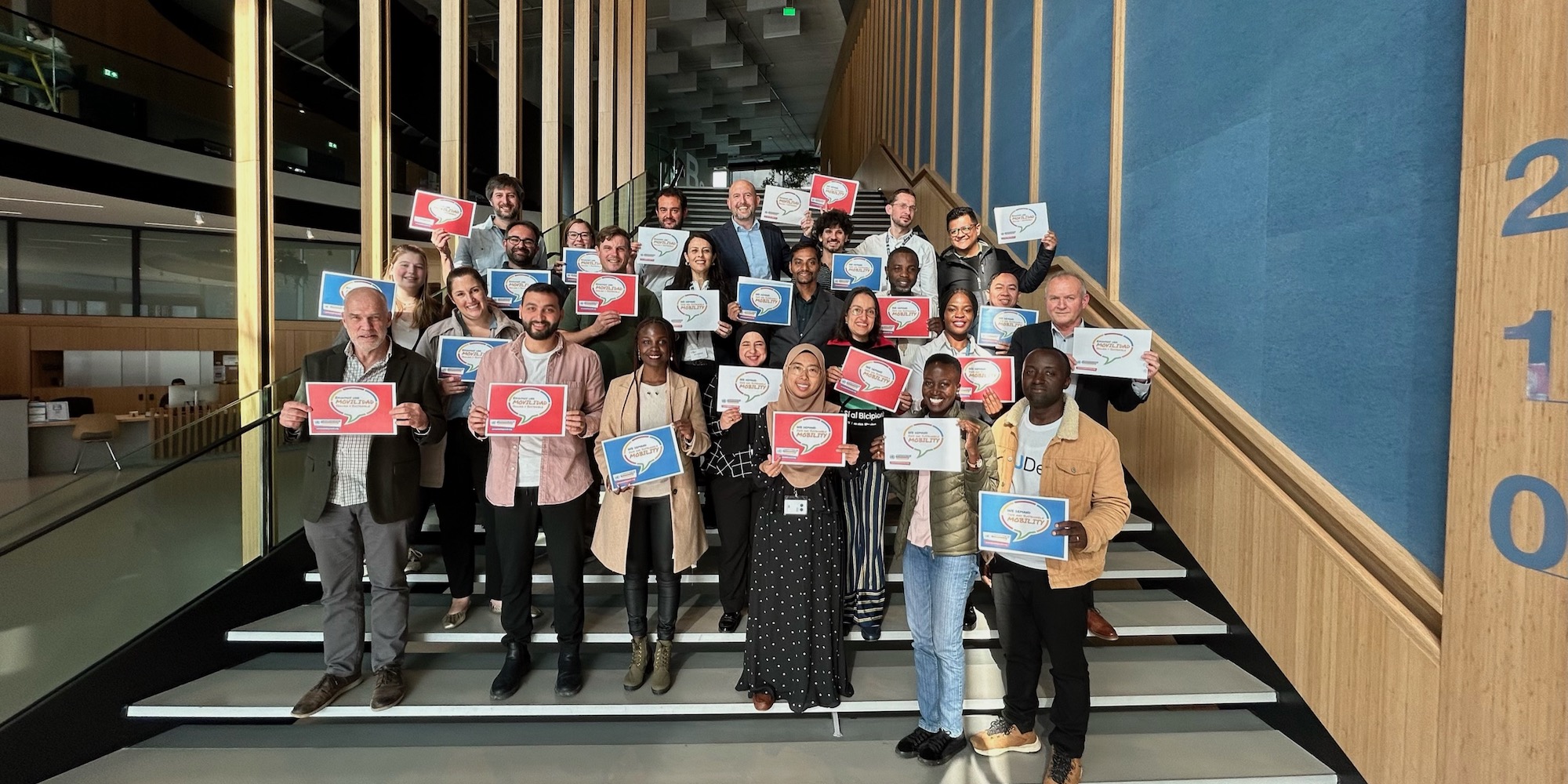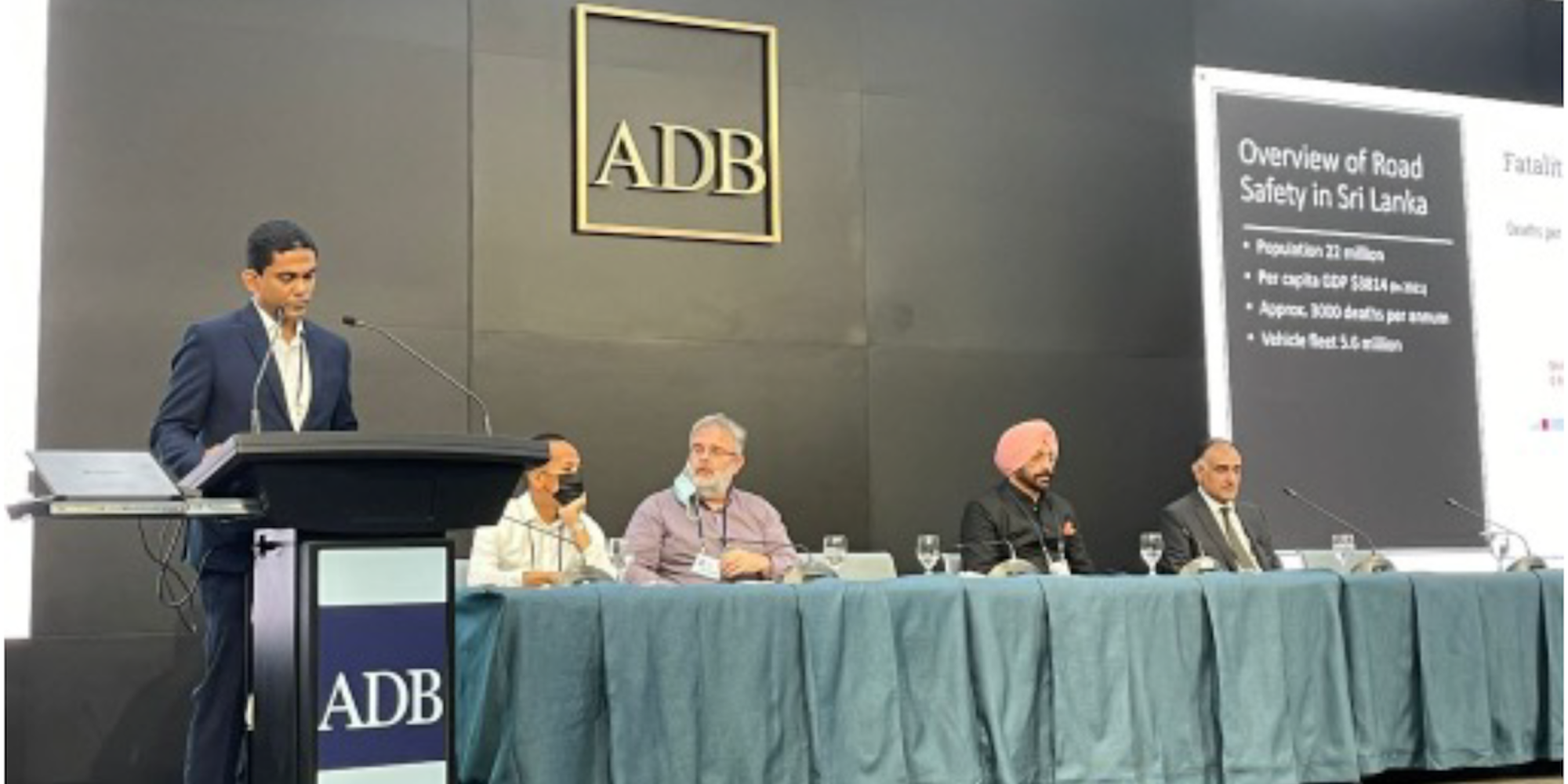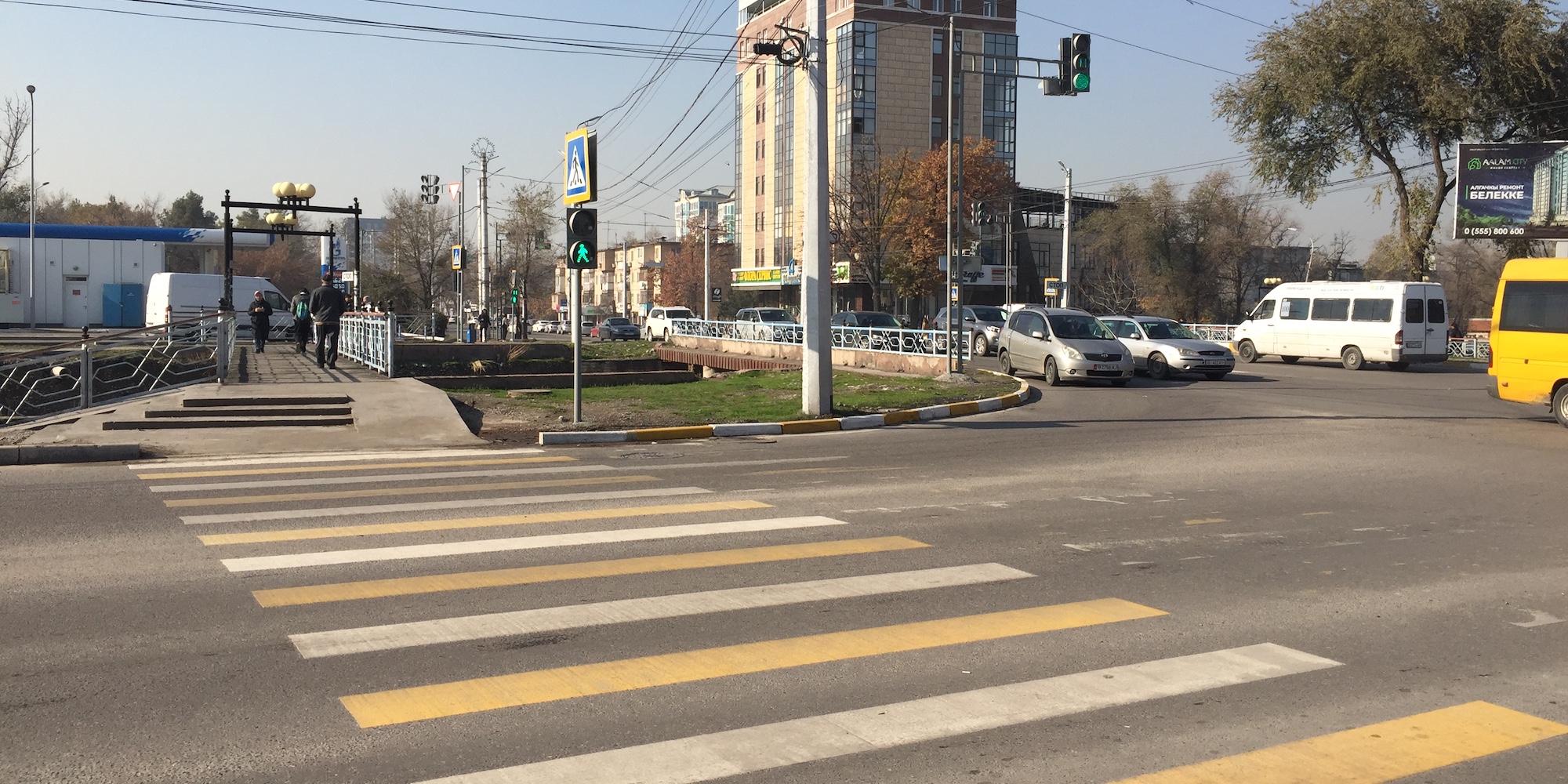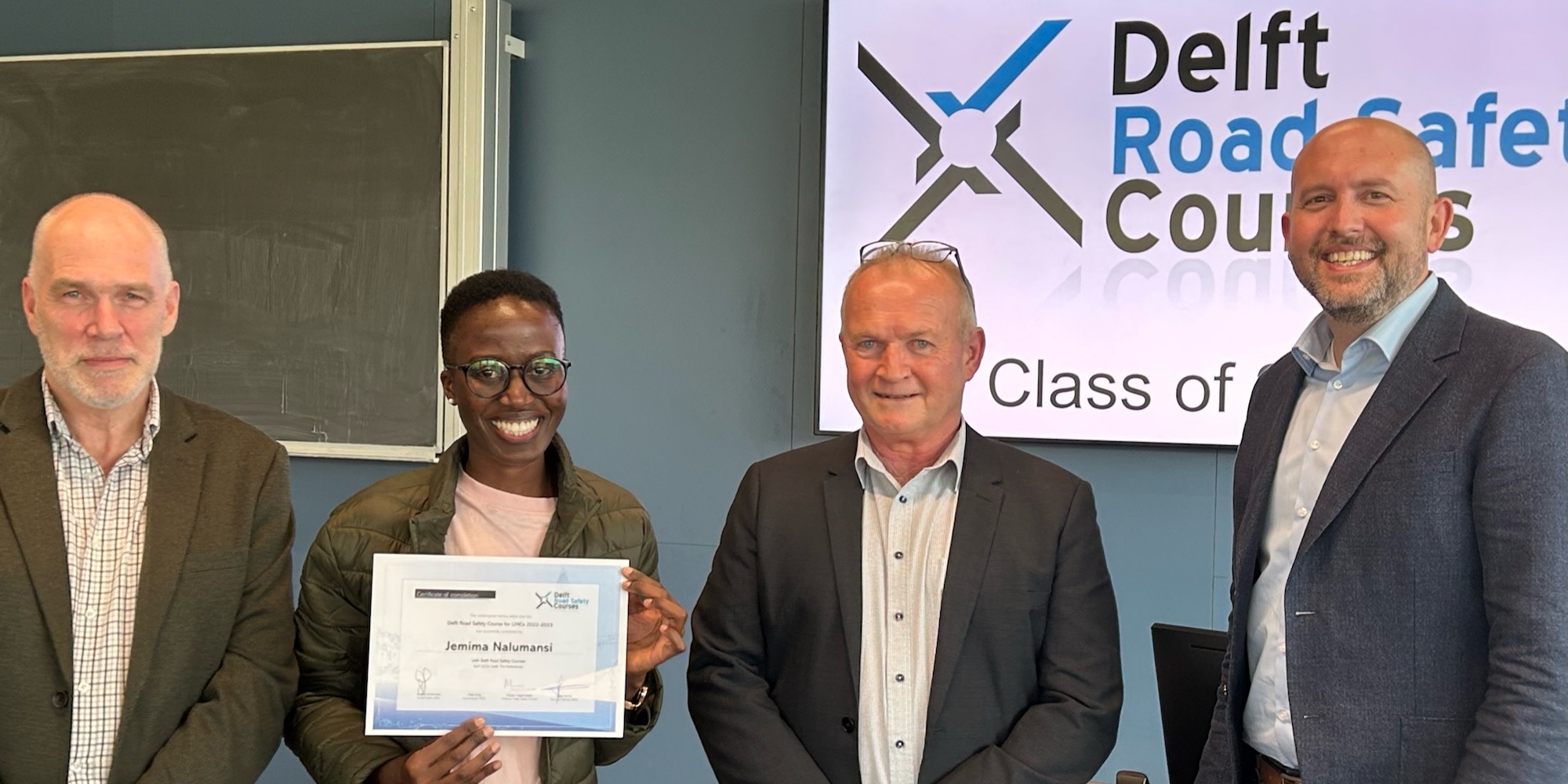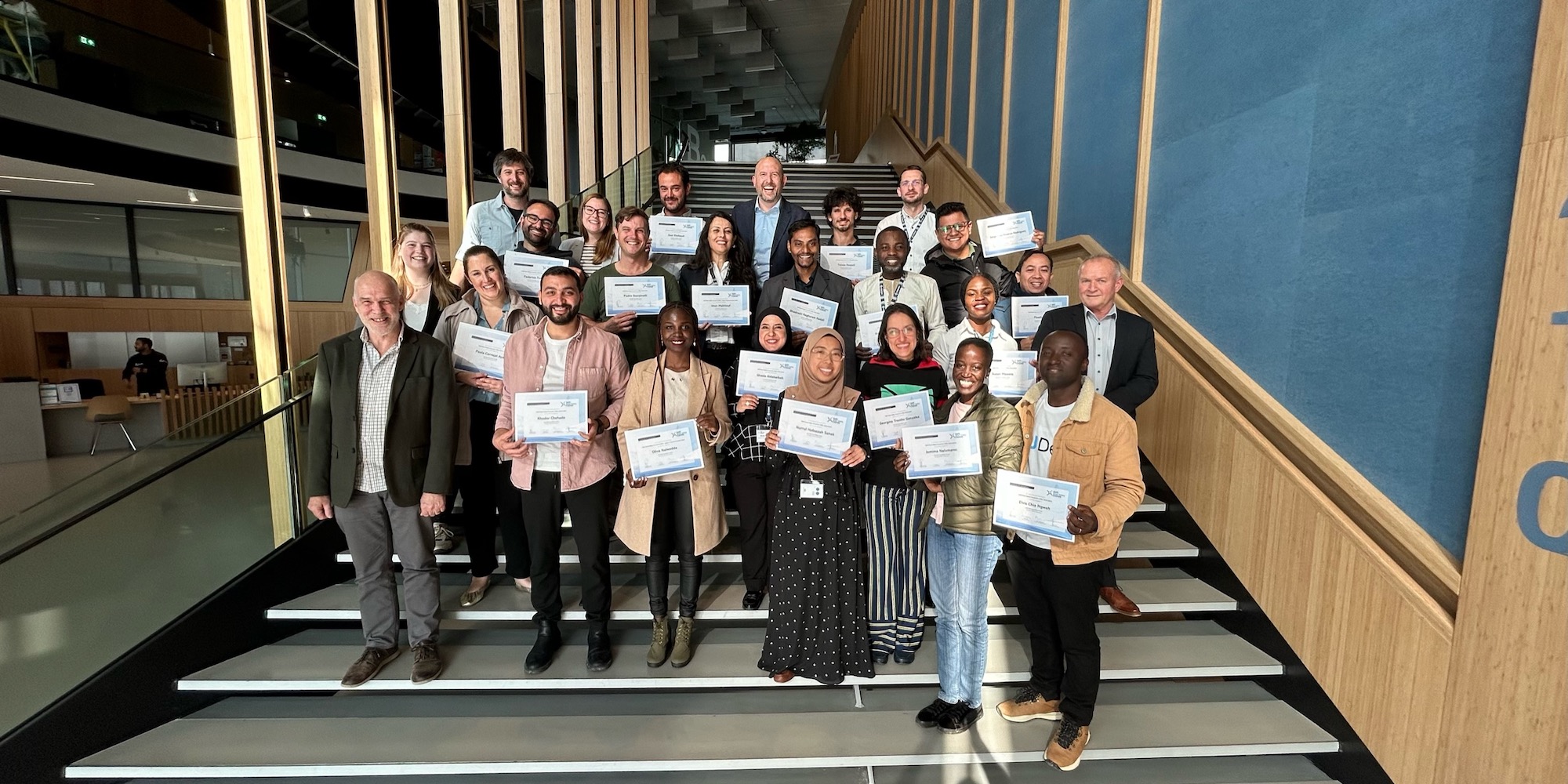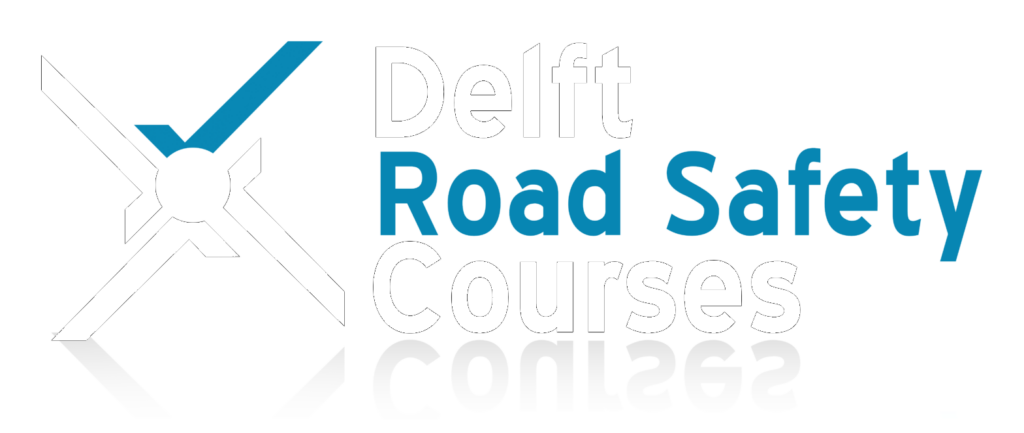DRSC News
Meet the new DRSC Course Co-Leaders
DRSC is delighted to announce that Mark King and Govert Schermers will co-leading this year’s Delft Road Safety Course.
Mark King
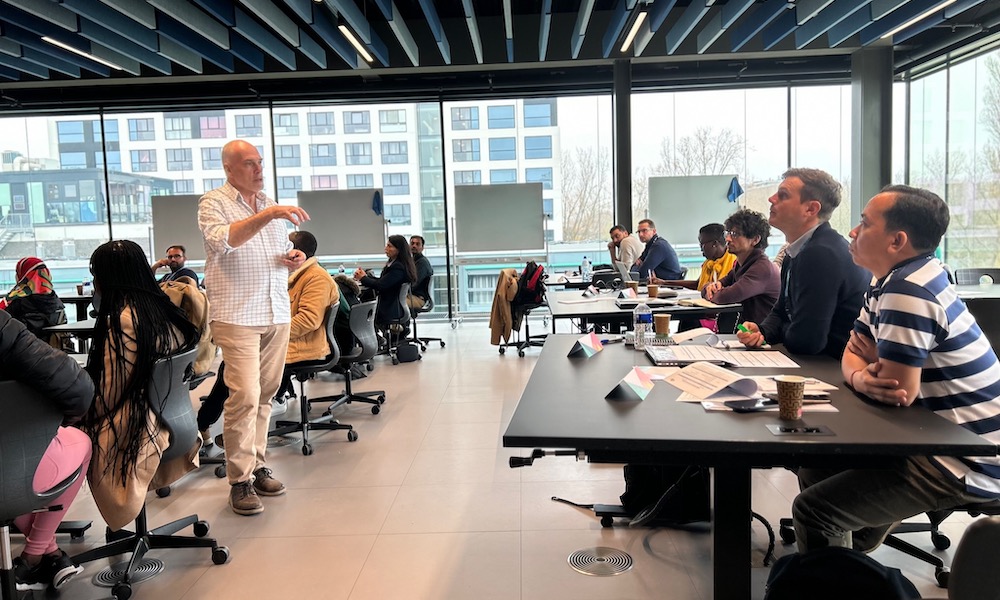
Mark is an Associate Professor and has been working in road safety for several decades, for government agencies, universities and as a consultant. He has been with the Centre for Accident Research and Road Safety – Queensland (CARRS-Q) in Australia since 2004, where he is Academic Lead Postgraduate Research. His PhD addressed the transfer of Western road safety knowledge and expertise to Asia, and both his capacity building experience and higher degree supervisions have continued this focus on road safety in low and middle income countries. His Australian research has covered most areas of road user behaviour and the interface with the road environment and traffic management, as well as some vehicle issues. He is a member of the Board of the International Council on Alcohol, Drugs and Traffic Safety, and the Board of the Australasian College of Road Safety.
Govert Schermers
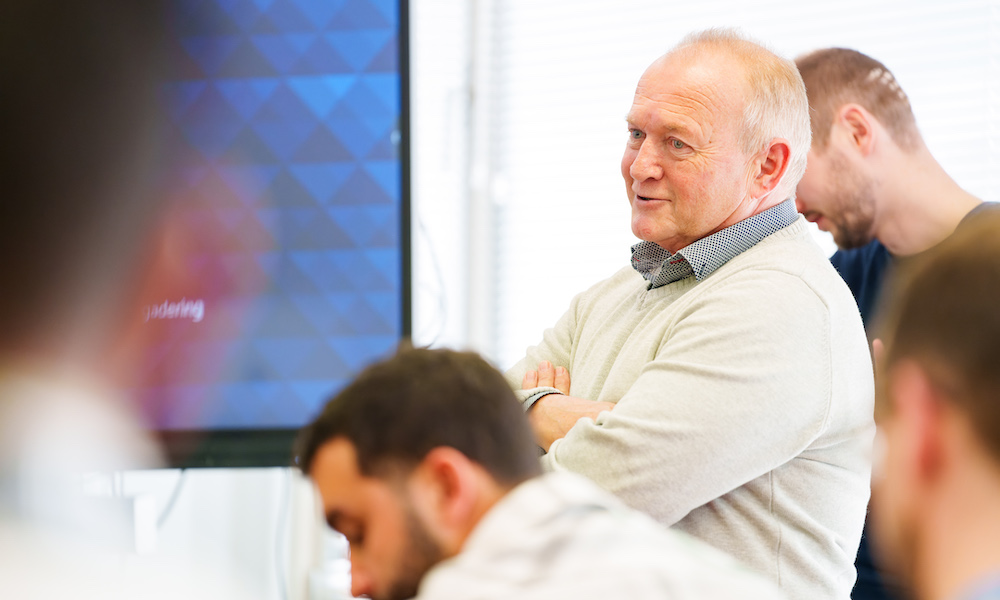
Govert is a Project Manager/ Senior Researcher at SWOV. He has worked on various EU projects such as Ripcord-Iserest, SafetyNet, Safety Cube, Saferafrica, Levitate. and led a number of CEDR projects including RISMET, PROGReSS, EUSight and ESRET. He has been responsible for conducting road safety capacity management reviews in Namibia, Kenya, Cameroon and Morocco and has been directly involved, either as project leader or team member, in developing road safety management techniques in the Netherlands and the EU. Govert currently serves on the Global Technical Committee of iRAP and, since 2022, on the ITF Working Group on Advancing the Safe System. Before this, as a Traffic Engineer by profession, Govert has worked as a senior traffic safety consultant at the Transport Research Centre (AVV) of the Ministry of Transport, Public Works in the Netherlands and at the Water Management, Division of Roads and Transport Technology of the Council of Scientific and Industrial Research (CSIR) in South Africa.
We caught up with them to ask about what they are most looking forward to for DRSC 2022/23:
Mark: One of my interests and what was a big part of my PhD was road safety in low and middle income countries because what I am interested in the way that you actually need to adapt what is considered to be best practice in high income countries into low income countries. I think that it’s often misunderstood. It’s assumed that you can just take something and shift it from one place to another without actually thinking about the context and the context is pretty complex. It ranges from high level institutional and governance type issues right down to the minutiae of what the local climate is like – soils and things like that which influences road conditions. So to be actually having a lot of students who are from low and middle income countries looking to implement road safety in their own countries, that’s a really great thing and that’s what I’m looking forward to.
Govert: I’ve been involved in road safety for a very long time. As far as I’m concerned, I’ve accumulated at lot of knowledge as far as road safety goes and I’m always very very happy and excited to share that knowledge with people that are willing to take on road safety in their own countries. So I think for me, that’s the biggest challenge. To try and create some sort of excitement amongst the group and amongst the students to pick up road safety in their own countries.
Mark: Delft has a strong reputation. It’s got the scholarship to attract very promising and motivated young scholars from low and middle income countries or who are working in low and middle income countries. And it’s able to assemble a lot of expertise. There are many consultants and academics who have done work in low and middle income countries who are based in Europe and we can also draw on people from further afield obviously, like myself. I think the combination of the expertise, and the interest, and the enthusiastic people who want to get out and do something.
Govert: I think it’s very directed at the group that we target. It’s really directed at low and middle income countries. The course itself brings a wealth of experience and skill to the table. The lecturers come from all sorts of backgrounds. Some of them have worked extensively in low and middle income countries. Others have been extensively involved in low and middle income countries as well as developed countries. So the experience that the lecturers themselves bring and the way that the course has been structured, it really brings a great balance as quite a detailed introduction to road safety. It’s bringing a lot of theory to the practice and to a practical application. That’s quite exciting.
Mark: I would like it to be said that the students have learned something that they found to be useful. That when they actually got down into doing something in their own country, they got information that they can draw on and say, “Well yes, I really learned and that actually helped me in achieving change in road safety”.
Govert: If we manage to create a sense of permanency, almost you could call it, of road safety in the groups that we will lecture this year and in the years to come, that those people can go away and champion road safety the importance of road safety in their countries. So they can create that awareness and the need to integrate road safety into everything that relates to transport and transport issues. I think then we’ve achieved ultimately what we’re aiming to do.
Mark: What you’ve got is a great opportunity and a challenge as well because we’re still coming out of Covid, but we’ve still got things that are going to influence this for some time. That sort of challenge means that situations change, and we need to be adaptable. I think be prepared for that, thinking about that: what is the kind of future that you want to be planning road safety in to? That is a key part of how you approach the Delft course.
Govert: First of all, is that you are going to be dedicated to road safety and it’s something that you want to further your career in. There are two things really with this course that as individuals you can achieve: one, is personal growth and the second is that you are going to bring some new skill sets to the organisations that you represent or will be representing. For us it’s very important that the people that are on the course take the knowledge that learned on the course and actually apply it in the countries that they go to. What we’ve seen often is that people get this form of training and then they move into other disciplines. Obviously, your career for yourself is important but it’s very sad to lose that sort of skill for the road safety sector. It’s important that the people that attend this course take that knowledge and embed it in the countries that they go to. That’s something that the candidates that are applying, and the coming students, should really bear in mind. It’s a life skills lessons that we are going to be trying to teach them.
